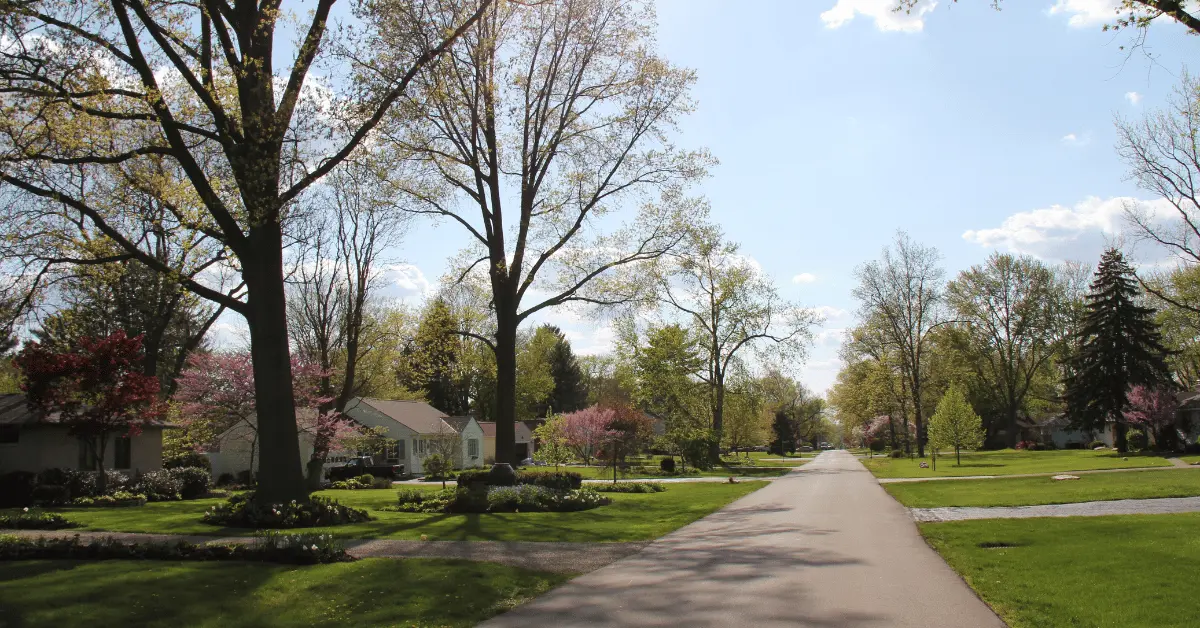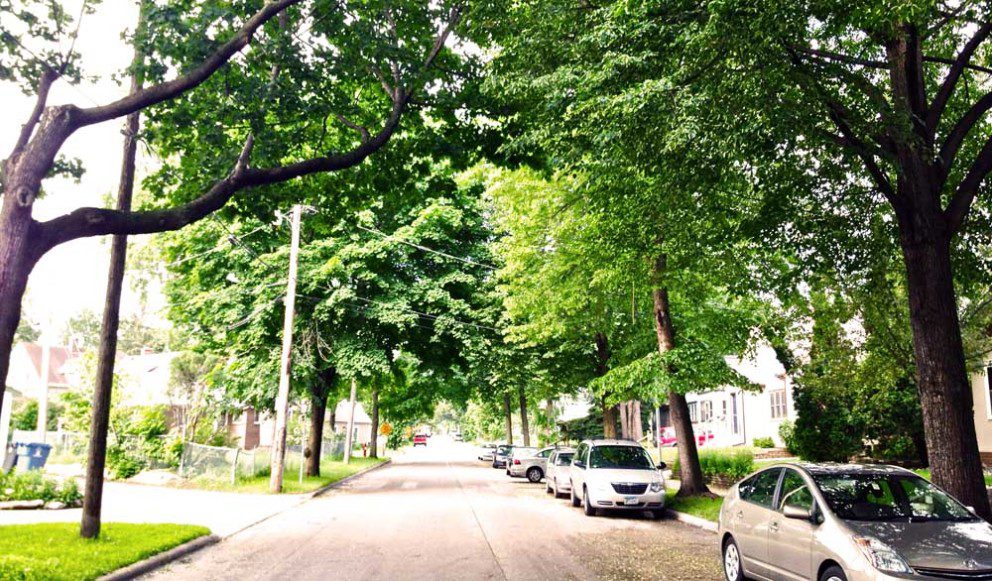We get many calls from customers inquiring about selling trees in their yard. Sometimes these customers have Ash trees that are dying from the Emerald Ash Borer and would like them removed.
Other times, customers call with Walnut trees, believing they hold significant value. In response to these inquiries about selling yard trees, logging companies like Timber Works typically give a straightforward answer. They do not buy yard trees (also known as urban trees).
Timber buyers steer clear of yard trees for several reasons. This is primarily related to the quantity of trees available in urban settings and their quality.
Urban Trees Often Contain Foreign Objects and Selling timber from yard trees
Trees that grow in an urban setting are often riddled with foreign objects, especially metal such as nails, screws, and bolts. The presence of metal causes the surrounding fiber of the tree to be stained dark blue or black. More significantly, the metal poses a potentially costly threat to the sawmill cutting the tree into dimensional lumber and other wood products. These might include flooring or hardwood slabs.

The Impact of Metal in Urban Trees on Sawmill Operations
Metal appears more often in trees from urban settings than in those harvested from forests. Although it sometimes occurs in forest trees as well. When a sawmill blade hits a metal object, it shears off the teeth. This renders the blade ineffective for cutting. This disruption halts the sawing process until workers install a fresh blade. Professionals then re-tip the damaged blade, which adds costs and removes it from production for an extended period. The business of selling yard trees often suffers due to such disruptions.
If the mill closely observes and gets lucky, it identifies the tell-tale stain from metal objects before causing damage. However, removing the metal takes time and significantly reduces productivity. Logs containing metal waste sawmills’ time and money, prompting log buyers to actively avoid them.
Urban Trees are of Low Quality
The other problem with yard trees is that they are often of low quality, which complicates selling yard trees.
Tree Growth in Urban and Forest Environments
When trees grow under a dense canopy, they reach for light. This directs growth upward instead of outward. In contrast, trees in neighborhoods or yards spread out more than those in the woods. As a result, they develop branches lower on the trunk. This reduces the percentage of these trees that can be cut into “grade lumber.” This refers to lumber with minimal or no knots or defects in the finished boards.
Further, urban trees grow much faster than trees in a thickly wooded area. This results in lumber that is less dense and more porous. In general, it is of lower quality than a tree whose rate of growth was slower.
Removing Urban Trees is Costly for a Logging Company Selling Yard Trees
Logging companies rarely use specialized equipment or carry the proper insurance to remove trees from urban settings. Even if they do, the cost of hauling equipment to the site and removing the entire tree, including its top, usually exceeds the tree’s value.
While exceptions are made to this rule, most urban trees have little or no value as lumber.


Comments 4
I have a hard wood tree that fell a few years ago. It is straight, up off the ground, approx 45 feet long an 7 to 8 feet around. Would yo be interested in it?
I have a hard wood tree that fell a few years ago. It is straight, up off the ground, approx 45 feet long an 7 to 8 feet around. Would yo be interested in it?
Corrected email
I have a huge oak tree it has to be about 200 yrs.old. I need removed. Can you help?
Oak tree 8 feet around and about 30 feet before branches -then about another 50 feet or soall straight located in rittman Ohio. Also may have 2 or 3 other home owners who have oak trees in similar condition? I know 1 tree may not pay for you to come here on the other hand several nice ones might.